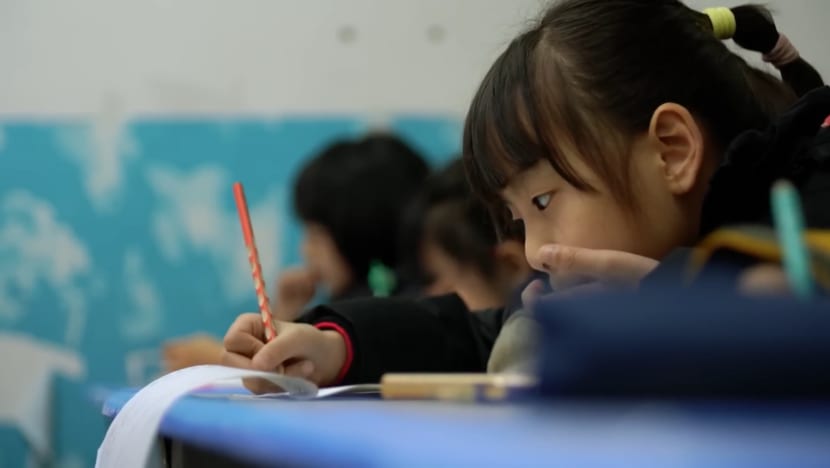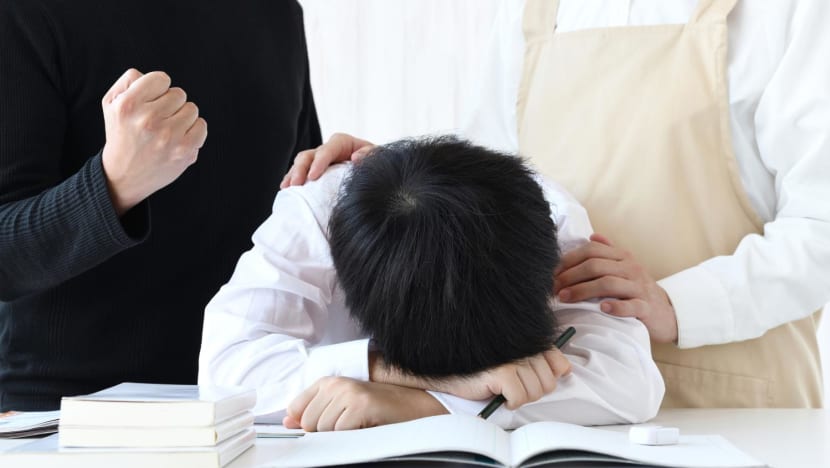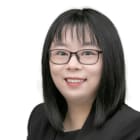A China-like tuition ban may not work, but Singapore can still find ways to address overreliance
Commentary: A China-like tuition ban may not work, but Singapore can still find ways to address overreliance
More than two years after China banned private tutoring, demand has persisted. Even if a similar ban might not work in Singapore, there could be other ways to reduce the overreliance on private tuition. RSIS’ Xue Zhang and SIT’s Intan Azura Mokhtar give their take.

SINGAPORE: At the start of a new school year, parents may be debating whether to sign their children up for private tuition. Is it still a matter of course today in Singapore, despite recent policy changes and talk about moving beyond grades and protecting children's mental health?
Some parents may wait to observe how their children are able to cope and manage the challenges of a new grade level, before deciding if the cost and stress might be worthwhile.
According to the last government’s Household Expenditure Survey, families spent S$1.4 billion on private tuition in 2017/2018. While there have been calls to ban private tuition in Singapore, the move to ban private tuition in China back in 2021 did not yield desired results.
TWO YEARS AFTER CHINA’S TUITION BAN
In July 2021, China announced a tough clampdown on its private tutoring industry to reduce academic burden and pressure on students. This included requiring after-school tuition centres to register as non-profit organisations and prohibiting both online and offline tutoring over the holidays and weekends.
More than two years later, the demand for private tuition has persisted. The regulatory measures have driven the industry into the shadows, resulting in the proliferation of illegal classes where parents have to turn to the "black market" for tutors, paying reportedly 10 times more than before for private tuition sessions. Children were even sent to live with their tutors during the school holidays.
China’s Ministry of Education has tightened regulations and ramped up enforcement measures. An interim regulation was rolled out in October 2023 to set out penalties for those illegally enrolling students in enrichment or tuition classes outside of school.
The Chinese government has clarified that regulating the private tutoring industry was to strengthen the main role of school education, and ensure the useful supplementary role of training and enrichment outside of mainstream schools. But experts agree that the intense competition in schools is still at the heart of the problem.
REDUCING OVERRELIANCE IN SINGAPORE
In Singapore, the highly competitive education system, such as having high-stakes examinations and academic streaming, has similarly fuelled the growth of the tuition industry.
Nevertheless, examinations and streaming should not be fully eliminated: Examination can help ensure consistency, standardisation, and fairness in evaluation, while streaming students can help provide a more targeted and conducive learning environment based on their learning abilities.
The challenge lies in discovering the ideal balance within our education system that allows for optimal learning and growth, while maintaining rigour and objectivity. To shift away from placing excessive importance on grades, Singapore’s education system has undergone several reforms.
Secondary schools used to be ranked or banded based on their academic performance at the GCE O-Level examinations until 2012 when the Ministry of Education (MOE) abolished it to support the vision of “every school a good school”. A new Primary School Leaving Examination (PSLE) scoring system has been adopted since 2021 with wider scoring bands, or achievement levels, instead of pitting one student against another based on discrete individual scores.
Mid-year examinations have been removed for primary and secondary students since 2023, and all secondary schools have now implemented full subject-based banding (SBB) to allow flexibility in taking subjects at different levels.
Some parents say the new PSLE scoring system creates “a different element of stress”, as top scoring bands have a narrower range than lower bands. Scrapping mid-year exams has also led to tuition centres filling the space with mock exams, for those anxious that the stakes of end-of-year exams are now higher. It is incumbent upon parents to recognise the risks associated with excessive pressure placed on their child, as well as the opportunity costs of tuition.
So whether these changes are effective will probably require more time to be seen, as they involve changing the mindsets of parents, students and educators, as well as the deeply rooted social culture where academic excellence translates to personal success.

NEED FOR REGULATION
China’s experience reinforces the notion that a ban on private tuition will unlikely be able to yield desired results. But even if the tuition industry is inevitable, there may still be ways for Singapore to better regulate and ensure it plays a supplementary role to mainstream schools.
One area is governance, such as licensing, advertising, and fees.
At present, only tuition centres with 10 or more students and only tutors at such centres must undergo registration with MOE. According to 2021 parliamentary replies, these regulations do not apply to freelance tutors offering private tuition outside centres.
To enhance governance, MOE might contemplate mandating all tuition centres to undergo registration and accreditation. It could establish a centralised tutor database, necessitating all tutors to register, with their qualifications and experience subject to verification.
Regulating advertising by private tuition centres or private tutors is another measure to consider. Tuition centres and providers leverage anxiety as a marketing strategy, persuading parents that private tuition is essential to mitigate the risk of being left behind.
For example, some tuition centres use words like “necessary” and “crucial” in their promotional materials, reaching out to even pre-schoolers. It is also common for tuition centres to use high passing rates and percentage of national top scores as supposedly objective measures of their centres’ performance; but in fact, strict selection and filtering processes of students may have been applied before enrolment and throughout the duration of their programmes.
Another notable concern is the sector’s excessive segmentation due to varying tuition fees, resulting in unequal access. For tuition to function properly as a supplementary element in Singapore’s education system, it is imperative to regulate costs, thereby ensuring equal opportunities for all.
On top of all this, the challenge is also in determining who should regulate. This responsibility cannot rest solely with MOE, as its primary role is to oversee education as a public good rather than for private consumption.
Parents may require much more time to significantly shift their mindset, while the education system is gradually transforming - but the private tuition sector will need to be made to evolve too.
Dr Xue Zhang is a Research Fellow at the Centre of Excellence for National Security (CENS), S Rajaratnam School of International Studies (RSIS), Nanyang Technological University (NTU), Singapore.
Dr Intan Azura Mokhtar is an Associate Professor and Director of the Community Leadership and Social Innovation Centre (CLASIC), Singapore Institute of Technology (SIT).






